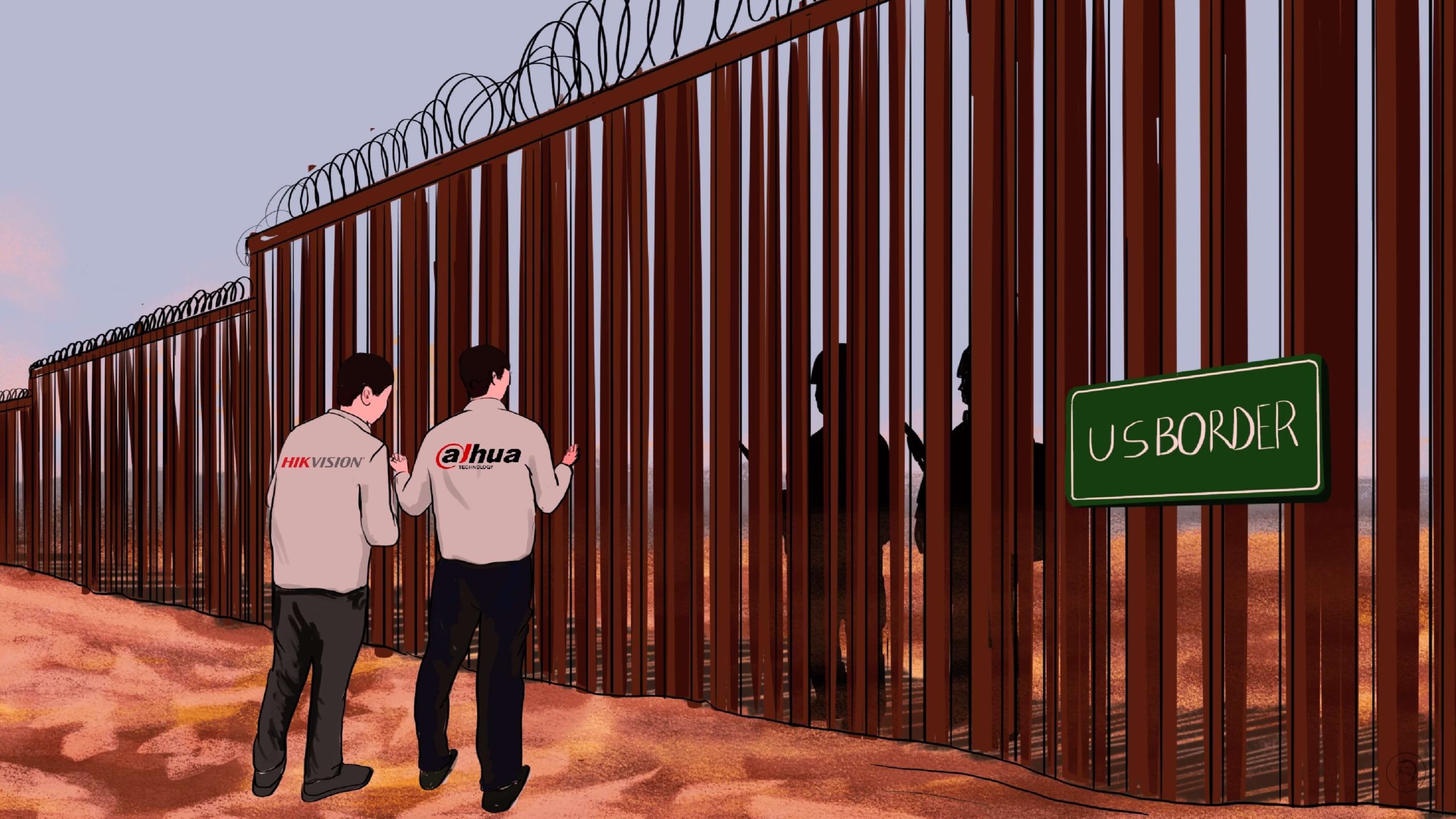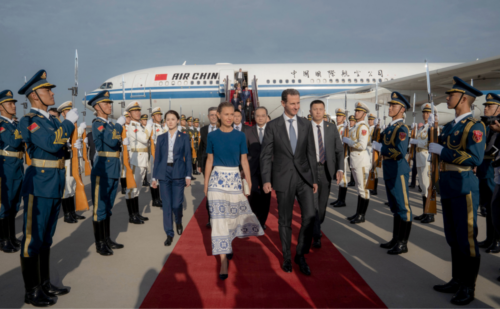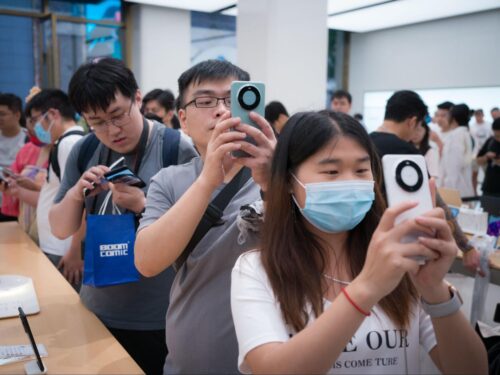U.S., U.K., and Australia hit Hikvision, Dahua, and other Chinese tech firms with new restrictions
A range of Chinese tech security and telecom companies has just been sanctioned by regulators in the U.S., the U.K., and Australia, including Hikvision and Dahua. It seems a sign of things to come.

It’s been a tough couple of weeks for Chinese security tech firms. Last week, the U.S. Federal Communications Commission (FCC) announced that it will no longer provide certain authorizations for devices made by Chinese companies that are on a government list that includes security tech firms Hikvision 海康威视 and Dahua 大华技术.
This effectively bans these companies from selling in the U.S. “for the purpose of public safety, security of government facilities, physical security surveillance of critical infrastructure, and other national security purposes.” Hytera 海能达, which produces two-way handheld radios, and telecom companies Huawei 华为 and ZTE 中兴通讯 are also on the list.
The day before the announcement, British regulators said that they would ban Hikvision from “sensitive” sites, and some members of parliament are pushing for even more thorough action against Chinese security tech firms. A Guardian report published on Monday details how Hikvision advertised ethnicity-recognition technology to British and European customers. And last week, Australian media confirmed that officials in Canberra were also moving to restrict the use of Dahua and Hikvision cameras.
The apparently coordinated restrictions on Hikvision and Dahua won’t necessarily spell the end of these firms’ ability to do business in the three countries. Given the fact that the regulations appear to mostly focus on government contracts and sensitive locations, they could likely keep selling to individual consumers and small businesses. The new regulations also don’t require facilities with Hikvision and Dahua tech currently installed to replace it.
Still, sanctions on these two companies have been piling up since the U.S. Commerce Department added them to its Entity List in 2019, restricting U.S. firms’ ability to sell them components. Additional future regulations could target their ability to do business in the U.S. and with its partners and allies.
A widening net
Hikvision and Dahua are major players in global security technology; revenue rankings show that they rank first and second among global surveillance and access control firms, and the two companies have significant business activities in the U.S., U.K., and Australia. U.K. NGO Big Brother Watch claimed in a February 2022 report that hundreds of thousands of internet-connected Hikvision and Dahua cameras are in use in the U.K. Reporting from Internet Protocol Video Market (IPVM), a U.S. security tech trade publication, and TechCrunch similarly showed that over 300 U.S. government organizations had bought Hikvision and Dahua technology from August 2019 to May 2021.
If the regulations on Hikvision and Dahua continue to hamper their global businesses, other unsanctioned Chinese firms may simply step in to fill the gap. The same rankings that placed Hikvision and Dahua as the world’s top two firms in surveillance and access control include various other Chinese companies that have yet to be formally sanctioned by U.S. regulators.
Included in the top 10 of those rankings are Hangzhou-based Uniview Technology 宇视科技 and Tianjin-based Tiandy Technologies 天地伟业. Uniview ranked sixth globally in 2021 with revenue of $941.3 million, and Tiandy ranked seventh with $825.1 million. A total of 15 Chinese companies made it into the top 50 rankings, 10 of which are in the top 25.
Some of these Chinese firms already have a foothold in the U.S., Australia, and the U.K. Infinova 英飞拓科技 showcases projects in the U.S. on its website, including surveillance tech at the University of South Florida and at a Seattle condominium. ZKTeco 熵基科技 similarly highlights projects in the U.S. on its website, such as surveillance cameras in the facilities of a multinational food and beverage company, and biometric security tech at McDonald’s franchises. Tiandy advertises its major successful projects, including at London’s Heathrow Airport and luxury residences in Queensland, Australia.
Whether these Chinese firms will be able to evade regulations is an open question, however, given evidence of their activities similar to those that have landed Hikvision and Dahua in trouble. For some of them, time and luck may have already run out. Marco Rubio last week called on the U.S. Departments of State, Commerce, and the Treasury to determine if Tiandy should be sanctioned, accusing the company of engaging in human rights violations in China’s Xinjiang region and of supplying Iran with surveillance technology in violation of U.S. sanctions.
IPVM has reported on Uniview’s use of algorithms designed to target Uyghurs in its technology. Given the fact that merely being based in the PRC raises questions on national security and the possibility of data transfers to the PRC government, it may simply be the case that all PRC-based security tech firms will eventually be blacklisted for use in sensitive sites in some Western countries.
China news, weekly.
Sign up for The China Project’s weekly newsletter, our free roundup of the most important China stories.
Pushing back: Lobbyists
If regulatory agencies begin to look deeper into the practices of Chinese surveillance tech firms, the beneficiaries may be lobbyists in Western capitals. Hikvision has paid Washington lobbyist Drew Willison over $500,000 in order to help it avoid Magnitsky Sanctions, and has spent millions more on other lobbying firms in D.C., according to data compiled by ProPublica. It has so far been able to escape the crippling sanctions regime of being excluded from all transactions with U.S. persons and companies.
Of the Chinese surveillance technology firms mentioned above, Hikvision has spent by far the most on Washington lobbyists. Dahua and Hytera have also hired lobbyists to represent their interests, but haven’t come close to Hikvision’s multi-million-dollar splurges on political influence. While these measures haven’t prevented Hikvision, Dahua, and Hytera from suffering the recent FCC ban, the possibility of evading future restrictions could end up justifying these expenses further down the line.
Searches in ProPublica’s database indicated that Tiandy, ZKTeco, and Uniview have yet to spend any money on Washington lobbying firms.






